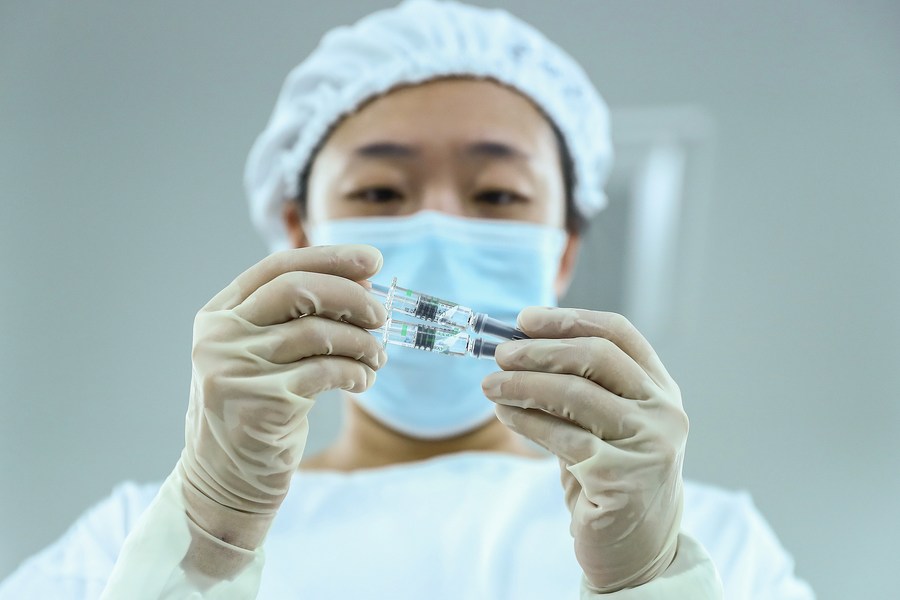China walks the talk on COVID-19 vaccine sharing
2021-01-06 11:52:40 来源: Xinhua 责任编辑: 陈佳丽|
A staff member checks the packaging quality of COVID-19 inactivated vaccine products at a packaging plant of the Beijing Biological Products Institute Co., Ltd. in Beijing, capital of China, Dec. 25, 2020. (Xinhua/Zhang Yuwei) China has promised and championed from the very beginning that COVID-19 vaccines developed in the country will be made a global public good when they are available. BEIJING, Jan. 5 (Xinhua) -- The international community has long been cleaved by deep disparities in wealth, education and even access to vital necessities such as electricity and clean water. The provision of COVID-19 vaccines must not add to that. However, the race to end this deadly pandemic may end up further segregating the world's haves and the have-nots, if the fair, just and universal vaccination can not be ensured. While some certain rich countries are trying to hoard as many vaccines as they can, many developing countries seeking their own doses are left in limbo. "Nearly 70 poor countries will only be able to vaccinate one in ten people against COVID-19," People's Vaccine Alliance, an international vaccine watchdog, stated in December, adding that rich nations representing just 14 percent of the world's population have bought up 53 percent of all the most promising vaccines produced as of now. Nobody should be left out from getting a life-saving vaccine because of their country of residence or bank balance. China has promised and championed from the very beginning that COVID-19 vaccines developed in the country will be made a global public good when they are available. The first batch of 3 million doses of COVID-19 vaccine, developed by China's SinoVac Biotech, arrived in the Turkish capital Ankara last week. Egypt licensed China's inactivated COVID-19 vaccine for emergency use, the United Arab Emirates and Bahrain have approved the Chinese inactivated vaccine registration according to the World Health Organization technical standards, while other countries, including Brazil, Indonesia, Chile and Malaysia, have ordered vaccines developed by China's Sinovac Biotech. China's approach runs contrary to what has been smeared as "vaccine diplomacy." The country is rather walking the talk on its promise to ensuring vaccine accessibility and affordability in developing countries. And it is determined to continue doing so. Any attempt at hoarding vaccines should be named and shamed, and it could even be argued that buying up the vast majority of the global vaccine supply is in potential breach of global human rights obligations, in times of nothing less than a catastrophe. It is also time to ponder how to properly share the vaccine expertise with more developing countries, so as to scale up urgently needed productions worldwide. While full protection of intellectual property rights behind the vaccines is needed and conducive to innovation, a for-profit monopoly of know-how must be opposed, as humanity is at an unprecedented juncture and bold actions are required. When it comes to a pandemic like this, no one is safe until everyone is safe. Vaccine nationalism and an unfair vaccine distribution will only prolong the pandemic and claim more lives. ■ |





